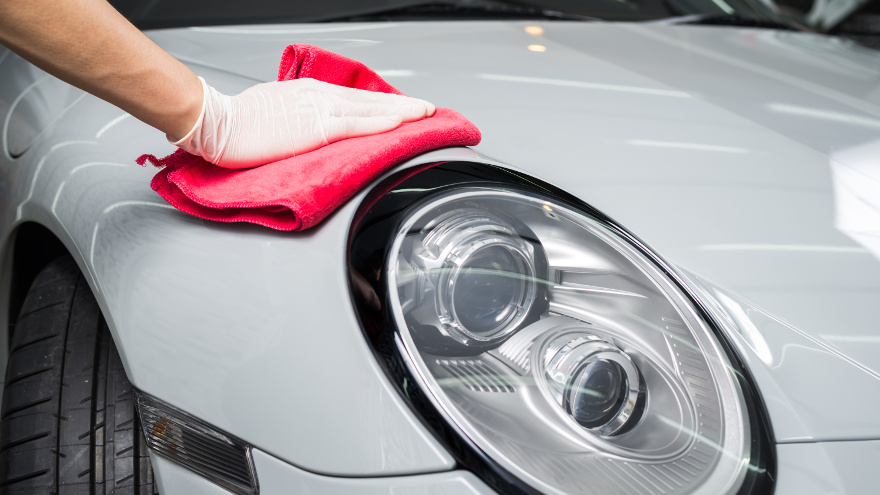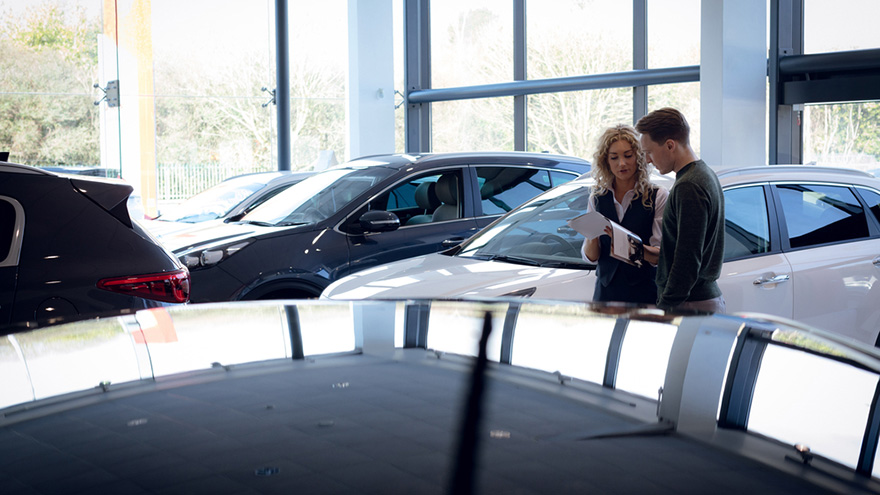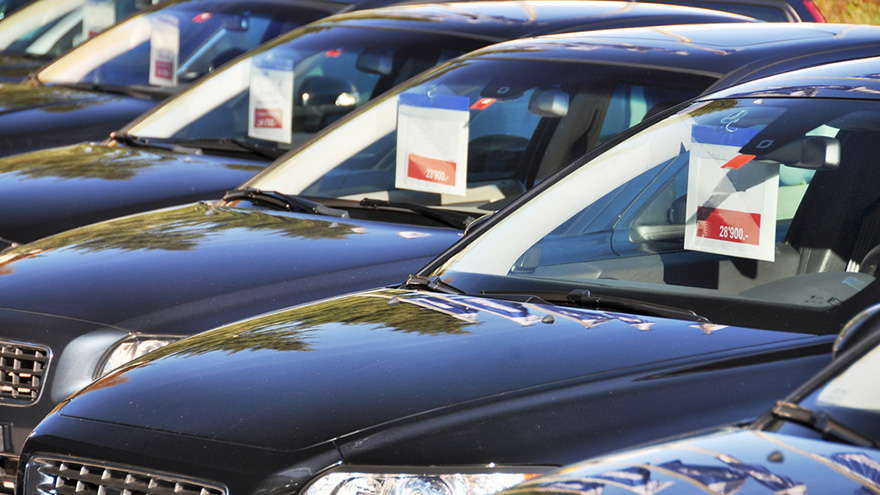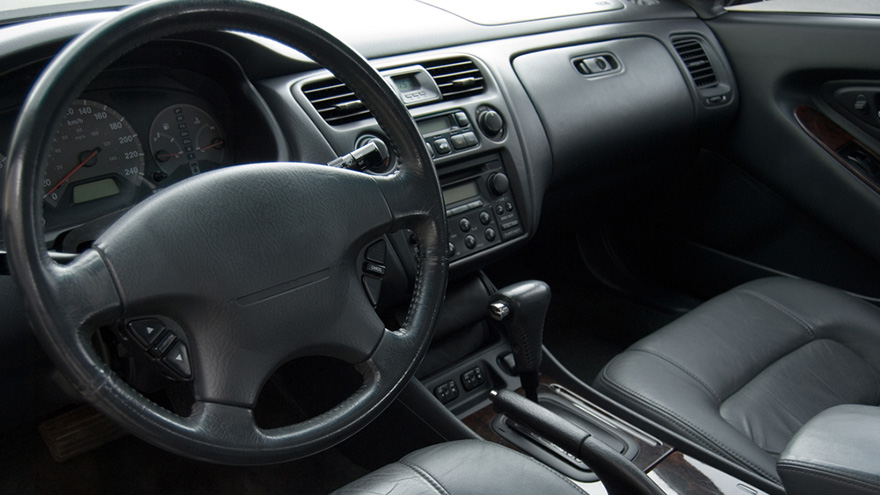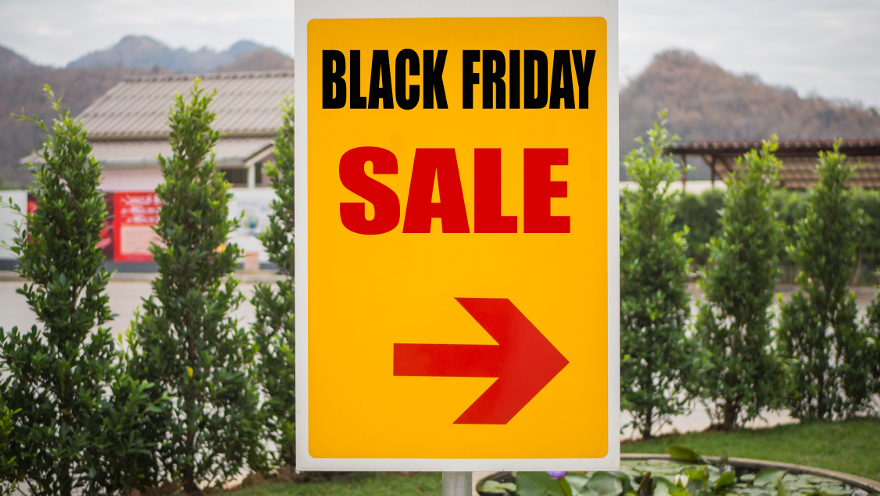Manheim has been investing $17 million to develop its retail reconditioning solution's proprietary technology platform and build new facilities, while upgrading existing ones.
In a news release, Manheim explained that its retail reconditioning solution is designed to help dealers increase efficiency and save time via offerings that include a 140-point retail inspection, mechanical and body reconditioning, detailing, merchandising, storage and transportation.
“Between saving time by outsourcing their retail reconditioning needs and freeing up their own service bays for paying customers, dealers can boost their profit on numerous fronts,” Manheim reconditioning vice president Angie Babin said in a news release.
“With the headwinds facing dealers today, any solution that can help them improve margins, manage greater capacity and turn cars faster is one that deserves serious consideration.”
While not replacing US Auto Sales’ centralized recon facility located in Lawrenceville, Ga., its marketing and business development director Neill Waters said Manheim’s retail reconditioning solution has become a dependable supplement.
“We buy a lot of vehicles in Orlando, Fla. We were shipping them all back to Georgia, reconditioning them, then sending some vehicles back down south to stores in South Georgia and Jacksonville, Fla.,” Waters explained in an email interview with Auto Remarketing.
“Our work with the Manheim Orlando facility allowed us to buy, recondition then ship direct to stores from the auction, ultimately reducing throughput days and logistics expense.”
Depending on client specifications and vehicle condition, dealers can generally expect a turn-around within four to 10 days, according to Manheim.
This year, the company said it has gotten more than 30,000 vehicles ready for retail for clients. These clients have included everyone from independent to franchise dealers, fleet operators and manufacturers.
Manheim has invested $9 million dollars in on-location operations, which includes building out new facilities at three locations and adding new lifts, paint booths and imaging booths to other locations.
The remainder of the $17 million investment was invested in the solution’s proprietary technology platform, developed with Xtime, which allows dealers to receive real-time updates on their inventory, approve or deny work, manage transportation and track costs and invoicing, according to Manheim.
Manheim currently operates retail reconditioning locations across Florida; Illinois, Missouri, Michigan; Georgia; Texas; Colorado; California; Washington, D.C. and South Carolina.
If publicly traded dealer groups wanted to buy another rooftop, they had to open their checkbooks or dig deeper into their credit availability based on the figures shared in the Q3 2017 edition of the Haig Report released on Wednesday by Haig Partners.
For the year-to-date numbers ending Sept. 30, Haig Partners calculated publicly traded retailers had spent $935 million on dealerships in the U.S., an increase of 62 percent from the $578 million deployed during the same period in 2016.
The report pointed out that Lithia Motors was the most active of the publicly traded companies and continues to target underperforming large platforms in different parts of the U.S.
“Despite all the noise regarding the potential negative impact on auto dealerships from ride sharing, electrification, autonomous vehicles and changes to the franchise system, the "smart money" is still buying dealerships,” Haig Partners said.
The report also shared that the number of dealerships that sold in the U.S. through the first nine months of the year declined by 18 percent compared to the same period in 2016.
Haig Partners also computed profits at privately owned dealerships for the 12 months ending Sept. 30 were 3.8 percent lower than year end 2016 due to rising costs.
Values of privately owned dealerships fell 3.2 percent during this period, according to the Haig Report. Haig Partners' franchised blue sky multiples were mostly unchanged in Q3, with increased valuations for Subaru and Volkswagen only.
Continuing the trend from 2016, the report showed demand for dealerships shifted from luxury brands to domestic brands that are heavier in trucks and SUVs. Luxury dealerships accounted for 14 percent of acquisitions through Q3, down from 17 percent through Q3 of last year, and purchases of domestic stores increased to 50 percent through Q3 from 46 percent through Q3 2016.
Other key findings from the Q3 2017 Haig Report include:
—Macroeconomic indicators such as GDP, interest rates, employment, number of miles driven and consumer sentiment remain highly favorable for dealers.
—Other trends such as used-vehicle pricing, incentive spending by the OEMs, and rising inventories are growing less favorable to dealers.
—Fleet sales have fallen by 8.3 percent through October, although retail sales are almost flat from the same period in 2016.
—Declines in new and used gross profits per vehicle are being offset by gains in F&I and fixed operations.
—Sales and gross profits continue to increase at dealerships, but expenses are rising faster leading to earnings declines at many public and private dealers.
—The average dealership pre-tax profit during the last 12 months was $1.41 million
—Average estimated blue sky value per dealership dipped 3.2 percent from the end of 2016 to $6.8 million.
—Potential threats from autonomous cars, ride sharing, electrification and changes to franchise laws are so far having minimal to no impact on dealership values.
—Public auto retailers are spending more of their capital on acquiring auto dealerships in the U.S. than last year.
—Private equity firms and family offices continue to make substantial investments in auto retail.
“As we expected, the sharp drop in the first quarter of the year has been offset by strong second and third quarters and we are expecting robust conditions for the rest of the year,” Haig Partners president Alan Haig said. “There are many buyers and sellers in the market and deal financing remains readily available. These are good conditions for buy-sells, so long as sellers understand that their leverage is more limited than in the past.
“Buyers have many options and are increasingly concerned about future profits. They are less likely to chase deals or pay big premiums. If dealers want to sell their dealerships they will likely need to accept today’s offer since tomorrow’s offer could be lower,” Haig continued.
Haig Partners is seeing these conditions in its current engagements that include domestic, import and luxury dealerships that range from Florida to New York to California. The firm has closed dealership transactions with a value of more than $3.6 billion during the past 20 years.
The Haig Report is published each quarter and includes comprehensive data, analyses and opinions about the auto retail industry. Also included in each edition are Haig Partners' blue sky multiples that can serve as a gauge for franchise values.
To download the report, go to this website.
RumbleOn announced Monday that it has named Peter Levy its new senior vice president of dealer services to oversee the development of the company’s dealer network and the rollout of its dealer-to-dealer Internet marketplace.
Over 25 years, Levy has taken on leading roles in sales, marketing and consulting at several technology-driven businesses, which include startups that capitalized on technology to gain market share, according to RumbleOn.
“We are excited to have Peter join our expanding team,” RumbleOn founder and chief executive officer Marshall Chesrown said in a news release.
“Given his impressive industry background, including his work at Integrated Auction Solutions, we believe he will make a significant and immediate contribution in our effort to, as a Company, create the most trusted brand and efficient online marketplace and distribution system in the recreational vehicle market," he said.
At Integrated Auction Solutions, an independent auto auction simulcast provider, Levy held a senior management position, according to RumbleOn.
“I am very excited to be a member of the RumbleOn management team in supporting the rapid expansion of the Company,” added Levy. “I have spent many years in the information services industry, and I view RumbleOn as an opportunity second to none.”
Kerrigan Advisors determined dealerships not only are moving metal this year, but they’re also turning their entire operations at quite a clip, too.
The firm’s Blue Sky Report for Q3 2017 indicated the dealership buy/sell market is poised for its most active year ever with more than 200 transaction closings projected for 2017.
The report described a trio of factors driving market activity, including strong financial markets, well-funded investors and rising real estate values. The firm explained the pressures of a more challenging auto retail market, dropping margins and rising concerns about the impact of disruptive automotive technology on the traditional dealership business model are also having a major impact.
And, while blue sky values are slightly lower than their 2015 peak, and the overall industry is showing some stagnation, Kerrigan Advisors determined 2017 remains on track to be the third most profitable ever, driving more sellers to market and transaction values to record levels when including dealership real estate.
“Historic mega deals with complex ownership structures and multiple franchises are on the rise. These transactions are supported by a financial market that is willing and able to invest hundreds of millions of dollars in auto retail, despite some of the doomsday headlines about slowing sales,” said Erin Kerrigan, managing director of Kerrigan Advisors.
“Investors and financial institutions see an opportunity to participate in a decades-long auto retail consolidation game – one that they expect will produce winners and losers, particularly as technological innovations potentially change the dealership business model as we know it,” Kerrigan continued.
Other key data and analysis from the Q3 2017 Blue Sky Report includes:
—The Kerrigan Index is up 4.24 percent year to date and 608 percent from its 2009 recession lows.
—One hundred and fourty nine dealership buy/sell transactions were completed in the first nine months of 2017, according to Kerrigan Advisors’ research and The Banks Report, compared to 172 transactions in the first nine months of 2016. After hitting a plateau in 2015, buy/sell activity declined slightly in the first nine months of 2017, but is still tracking to be one of the most active years on record.
—Multi-dealership transactions represented one quarter of the completed sales in the first nine months of 2017. Kerrigan Advisors expects at least 51 multi-dealership transactions will close this year.
—Year to date, domestics’ share of the buy/sell market increased to 49 percent, up 18 percent from 2015.
—Non-luxury and luxury import franchises’ buy/sell market share declined.
—Public retailers’ U.S. acquisition spending increased 61 percent in the first nine months of 2017, compared to the first nine months of 2016.
—Private dealership groups represent the largest share of dealership acquirers. Of the estimated 236 franchises that changed hands in the first nine months of the year, only 23 were acquired by public companies.
—Real estate, for most dealers, is the most valuable asset, far exceeding franchise value. Kerrigan Advisors estimated dealership real estate prices rose 3 percent in the first nine months of the year.
The report identified three key trends shaping 2018’s buy/sell market and the remainder of 2017. Those trends included:
—The evolution of the dealership business model drives more sellers to market.
—Dealers are choosing to sell their real estate with their franchise.
—Captive finance companies play a critical role in acquisition financing.
“Our clients increasingly cite the risk factors associated with changes in auto retail as their single biggest reason for selling, with many believing auto retail will consolidate out of necessity, as only the largest, best-capitalized players will have the balance sheet to navigate auto retail’s evolution,” Kerrigan said.
“This is contributing to a very competitive buy/sell market, particularly for top franchises and attractive platforms and the growing population of well-funded buyers in the market,” she continued. “This creates a healthy market equilibrium — one where buyers and sellers agree on price and complete win/win transactions.
“Kerrigan Advisors believes this equilibrium will continue for the next several years and result in a highly active buy/sell market,” Kerrigan went on to say.
Kerrigan Advisors is deeply involved in the buy/sell market having advised on the sale of 60 dealerships, including four of the Top 100 dealership groups in the U.S. Most recently, Kerrigan advised on the sale of Puente Hills Chevrolet, in its recent sale to Pendragon PLC.
The Blue Sky Report, a Kerrigan Quarterly, is published four times a year and includes Kerrigan Advisors’ signature blue sky charts, multiples and analysis for each franchise in the luxury and non-luxury segments. To download the Blue Sky Report, go to this website.
A dealer organization and a service provider are joining forces to comply with a new mandate coming in Tennessee involving vehicle recalls.
Looking for ways to help Tennessee dealer members better identify safety recalls and streamline new recall compliance efforts requiring recall disclosure to consumers prior to sale, the Tennessee Automotive Association has entered into a strategic alliance with recall management service provider AutoAp.
The move is an attempt to help dealers comply with the Tennessee Motor Vehicle Recall and Disclosure Law that goes into effect in January.
“During our efforts to secure the passage of the Tennessee Motor Vehicle Recall and Disclosure Law, we became aware of the real-life difficulties dealers experience in seeking to identify recalls,” Tennessee Automotive Association president Bob Weaver said. “We set out in search of a strategic partner to help our members with an effective compliance solution, and AutoAp’s Dynamic Recall Management service does just that.
“Choosing AutoAp was the right thing to do,” Weaver continued.
AutoAp’s suite of safety recall management solutions can help dealers make informed decisions at vehicle acquisition, reduce recall liability and streamline recall compliance requirements for vehicles in inventory, and generate net-new service revenue from their sold customer vehicles.
“We are honored that the Tennessee Automotive Association has chosen AutoAp. With this strategic alliance, Tennessee motor vehicle dealers are assured of receiving the highest quality and comprehensive safety recall management solutions,” AutoAp chief executive officer Mark Paul said.
The latest dealer survey from KeyBanc Capital Markets highlighted that an overwhelming majority of participants see used vehicles rolling over the curb at a healthy clip and service drives steady with activity.
Analysts explained that survey responses indicated a second consecutive month of used-vehicle sales volume increases in October as 76 percent of respondents reported various levels of year-over-year growth, continuing September’s strong trend when 86 percent of respondents reported an increase.
Meanwhile, KeyBanc reported that parts and service revenue growth trends appear strong for the second consecutive month as 88 percent responding dealers said they enjoyed growth through the service drive in October. Like used sales, this P&S trend continued from September’s positive reading that had 71 percent of participating dealers enjoying growth in this store department.
In other parts of KeyBanc’s latest survey, analysts found that dealers split almost evenly with regard to their gross profit per unit on used-vehicle sales with nearly an equal amount seeing a $50 year-over-year rise in October while the remainder sustained a dip by that figure on a comparative basis.
However, the F&I department continues to enjoy solid performances for participating dealers, which included 88 percent that noted gross profit per unit improved in October; some by more than $50 per delivery.
As dealers continue to wage the battle for gross in the used department, the KeyBanc survey detailed how the challenge is continuing on the new-car side, too, with 56 percent of respondents saying gross on new models dipped by $50 per unit in October.
Finally when it comes to financing, the dealer survey results mirrored findings from the latest data from TransUnion as 53 percent of participants reported tightening availability, especially when it comes to subprime.
“Going forward, we expect default rates to remain well below pre-recession levels and automotive financing availability to remain stable,” KeyBanc said.
Alliance Inspection Management (AiM) recently launched AiMCertify.com for vehicle buyers and sellers.
AiMCertify.com offers tiered inspection solutions — starting as low as $129 — for used vehicle shoppers and sellers through four product offerings: AiM Preferred, AiM Plus, AiM Premier and AiM Commercial. Each package includes:
—A 150-point inspection
—Bumper-to-bumper interior and exterior evaluation
—A test drive by a professional inspector
—15 or more photos documenting condition
—Online reporting and much more
Vehicle history reports and fluid testing are included in several packages.
All inspection products include a condition report with an “A” to “F” letter grade so buyers can quickly make informed decisions and sellers can list their vehicles with confidence.
In light of recent weather catastrophes such as Hurricanes Harvey and Irma, now is the ample time for consumers be aware of a used car's condition before making a major purchase.
Additionally, Kelley Blue Book has begun a pilot program of AimCertify.com in markets across the U.S. including:
• Los Angeles
• Chicago
• Dallas
• San Francisco
• Boston
• Atlanta
• Tampa, Fla.
• Phoenix
• Seattle
“One of the biggest concerns when purchasing a pre-owned vehicle are underlying issues that might go unnoticed,” AiM senior vice president of sales and marketing Eric Widmer said. “Prospective vehicle buyers can use our services to ensure these items get identified before they pay for the car.
“It is also a good practice for people selling cars to be proactive and get a third-party inspection as this creates a trustworthy sales experience for both parties,” Widmer continued. “With used-car sales at an all-time high, we’ve launched AiMCertify.com to provide a solution for used car shoppers that want to have an independent verification of the condition of a car before making the purchase and sellers who want to address items before they list their vehicle for sale.”
AiMCertify.com inspections use the company’s proprietary software, hardware and training to ensure consistent high-quality and accurate condition reports. AiMCertify.com condition reports are designed to increase buyer confidence and reduce the time it takes to sell a vehicle. AiM’s more than 1,400 full-time vehicle inspectors operate throughout the U.S., enabling AiM to address the more than 10 million vehicles bought and sold in the peer-to-peer market.
For more information please visit AiMCertify.com.
Thanksgiving has always been one of my favorite holidays. A uniquely American opportunity to gather with family, share favorite recipes, and reflect upon all the blessings in your life is a blessing in itself. But this year, I suspect many dealers will experience indigestion around the Thanksgiving table NOT due entirely to green bean casserole.
Dealers, like a lot of small business owners, are feeling anxious about all the political and economic uncertainty swirling around the country. Ever since Congress embarked upon its fast-paced tax reform efforts, and the president began railing against the North American Free Trade Agreement (NAFTA), dealers and other small business owners have been experiencing heartburn over what the future could hold.
Objectively, tax cuts are a very, very good thing. The United States tax code is long overdue for sensible reform that benefits American workers and businesses, and I am hopeful that 2017 is the year we finally see it happen. That said, never in this country’s history has a tax overhaul been attempted at such break neck speed. Dealers are getting whiplash trying to figure out what’s in the bill, what’s out, and how it will all affect our bottom line.
Even as taxes fully occupy most of Washington, D.C., AIADA is also keeping an eye on trade. In his presidential campaign, and now as the 45th President of the United States, Donald Trump has spoken out forcefully against what he views as trade imbalances between the U.S. and the rest of the world. His favorite target has been NAFTA, and the agreement is now being renegotiated at his request. Unfortunately negotiations aren’t going smoothly, prompting dealers to wonder: What happens to the American auto industry – one of NAFTA’s greatest success stories – if America pulls out of the agreement?
We know that without NAFTA jobs will be lost, the cost of cars and trucks will rise, and that international nameplate brands will have less reason to invest in American manufacturing facilities. The White House’s affinity for protectionism is a real and present danger not just to our highly globalized industry, but to the American economy as a whole. At risk are countless industries, including auto retailers who today employ an all-time high of 1,134,200 workers.
Last year at this time, the 20 percent border adjustment tax took us by surprise, but we were able to defeat it with your support. This year we have new challenges that we can only beat back with your help. AIADA is already hard at work, reminding and informing the administration and its trade negotiators that NAFTA is working for the American automobile dealer. We have formed an active public affairs coalition in D.C. to protect NAFTA and raise awareness of its positive effects, just as we are working on Capitol Hill to protect your interests during the tax debates.
Hopefully, AIADA can put your mind at ease this Thanksgiving, so you can focus on the important things – like pie.
Paul Ritchie is the current chairman of the American International Automobile Dealers Association (AIADA). This blog post originally appeared on the association’s website here.
While many Americans might be napping off that extra helping of turkey, car-shopping activity isn’t likely to hit the snooze button on Black Friday.
New research from Cars.com indicates that 18 percent of car shoppers say they have more reason to visit dealerships that day. And nearly three-fourths of that crowd (74 percent) say it’s directly due to the special deals and incentives being offered on Black Friday.
Interestingly enough, though, it’s not just the sweet deals that are driving some consumers into the showroom.
“With deals aplenty, shoppers have good reason to go car shopping,” said Cars.com editor-in-chief Jennifer Newman, in a news release. “However, our research indicated that regardless of deals and incentives, 16 percent of shoppers are more inclined to visit a dealership this Black Friday because they have more available free time, and 8 percent said they’d shop over Black Friday simply because ‘it’s fun.’”
And Black Friday may be even more prosperous for dealers than the following Cyber Monday or any other portion of the weekend, according to data from Dealer.com.
The company’s Dealer DataView index shows that after dipping modestly at the end of summer, total dealership website traffic climbed 3 percent from September to October.
Views of vehicle detail pages climbed 2 percent, the index found.
These two measures combined indicate that fall is showing a “relatively robust selling climate,” Dealer.com said in a news release, noting that dealers are preparing to see activity spikes for both Black Friday and Cyber Monday.
“However, insights from last year regarding credit application volume — a leading indicator of purchase intent — suggest that dealers have a compelling reason to prioritize Black Friday over the rest of the holiday weekend,” the company said.
Last year, credit applications on Black Friday were up nearly 40 percent against other Fridays that November, according to data from Cox Automotive sister company Dealertrack that was cited by Dealer.com.
But Cyber Monday did not see a similar lift, as there was just a 2.6-percent rise against other Mondays that month.
“The DataView index provides a timely snapshot and actionable insights for dealers seeking to better understand consumer sentiment,” said James Grace, senior director of analytics products at Cox Automotive Media Solutions, in a news release. “As dealers gear up for the holiday season, the November report points to another period of robust demand and purchase intent from car shoppers.”
Cars.com outlined for consumers some of the top car deals they can expect to find at their local dealerships. But it would also be prudent for dealers to take note of what specific vehicles shoppers have their eyes on this year as arguably one of the busiest holidays of the year for most dealerships approaches.
Cars.com pointed out that with “a trifecta” of year-end, month-end and Black Friday, manufacturers are stepping up incentives for this upcoming holiday weekend.
After a sluggish October for new-car sales, OEMs are using the holiday as an “additional way to entice shoppers,” Cars.com pointed out.
On top of the incentive of what are expected to be record auto sales deals, dealers should expect a hefty increase in traffic, as well, if a recent Cars.com study is any indicator.
According to the Cars.com study, 18 percent of car shoppers said they’re more inclined to visit a dealership on Black Friday. And seventy-four percent of those shoppers said they’re more inclined to visit a dealership on the holiday specifically as a result of special deals and promotions.
Jennifer Newman, Cars.com’s editor-in-chief, had this to say for potential vehicle shoppers, “We’re seeing solid incentives from a number of different manufacturers. If you are already in the market for a new car, you might want to consider hitting your local dealership lots this Black Friday instead of waiting in long lines at your nearest big-box store. From the data we’ve seen, the reward is there for certain vehicles,” she continued.
Here are a few of the most noteworthy incentives manufacturers are doling out for Black Friday, according to Cars.com. These manufacturers are also offering further deals if customers finance through their respective captives.
- Ford Fusion: savings of between $2,150 and $5,000 on certain 2017 trims
- Hyundai Elantra: a discount of $3,000 on 2018 Elantra sedans and $1,000 off on the hatchback model, the Elantra GT
- Kia Optima: Savings of $1,500 off the 2018 Optima and $3,000 off the 2017 model.
- Kia Sorento: 2017 Sorento models can be purchased with a $3,000 to $4,000 discount, and 2018 models are being offered with a $1,500 to $2,000 discount.
“With deals aplenty, shoppers have good reason to go car shopping,” Newman said. “However, our research indicated that regardless of deals and incentives, 16 percent of shoppers are more inclined to visit a dealership this Black Friday because they have more available free time, and 8 percent said they’d shop over Black Friday simply because ‘it’s fun’.”

